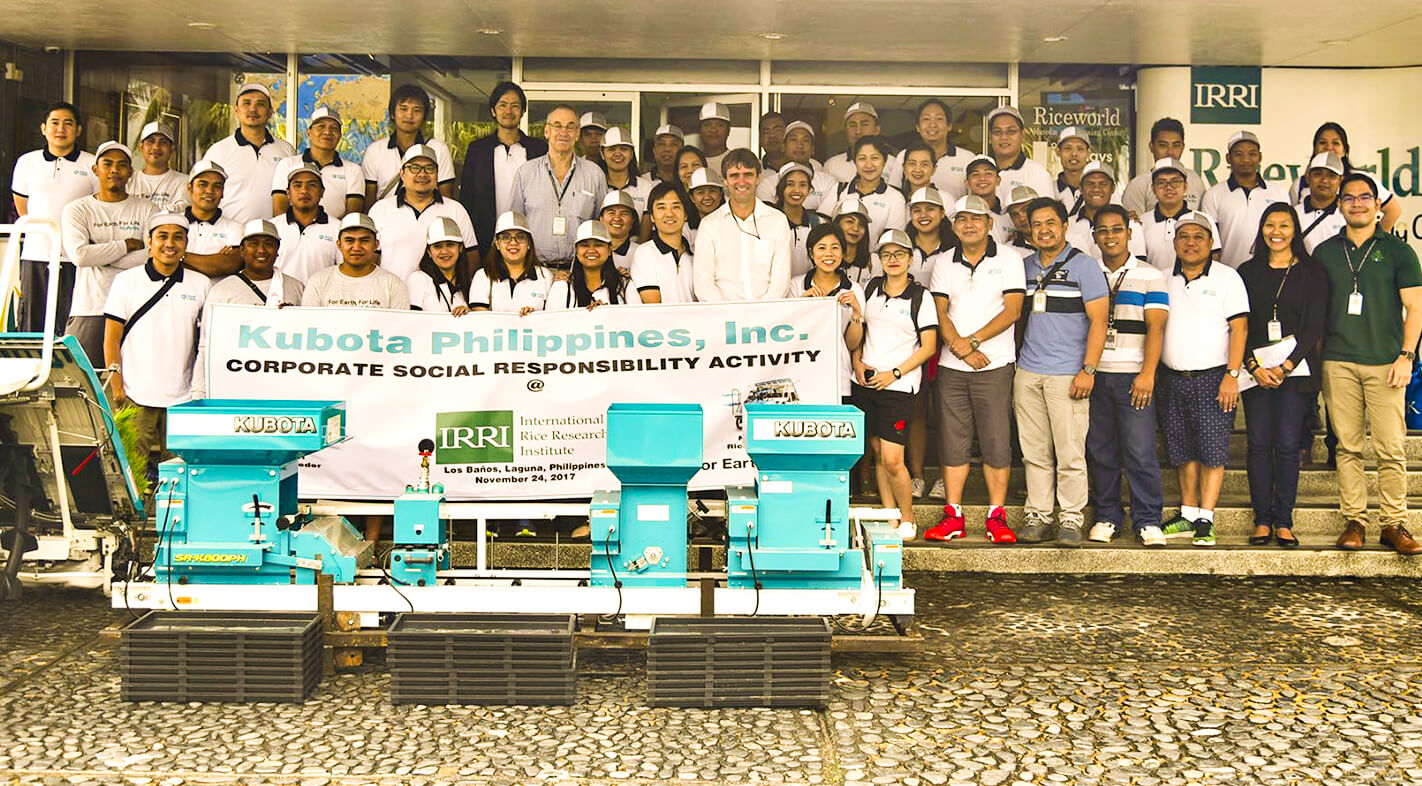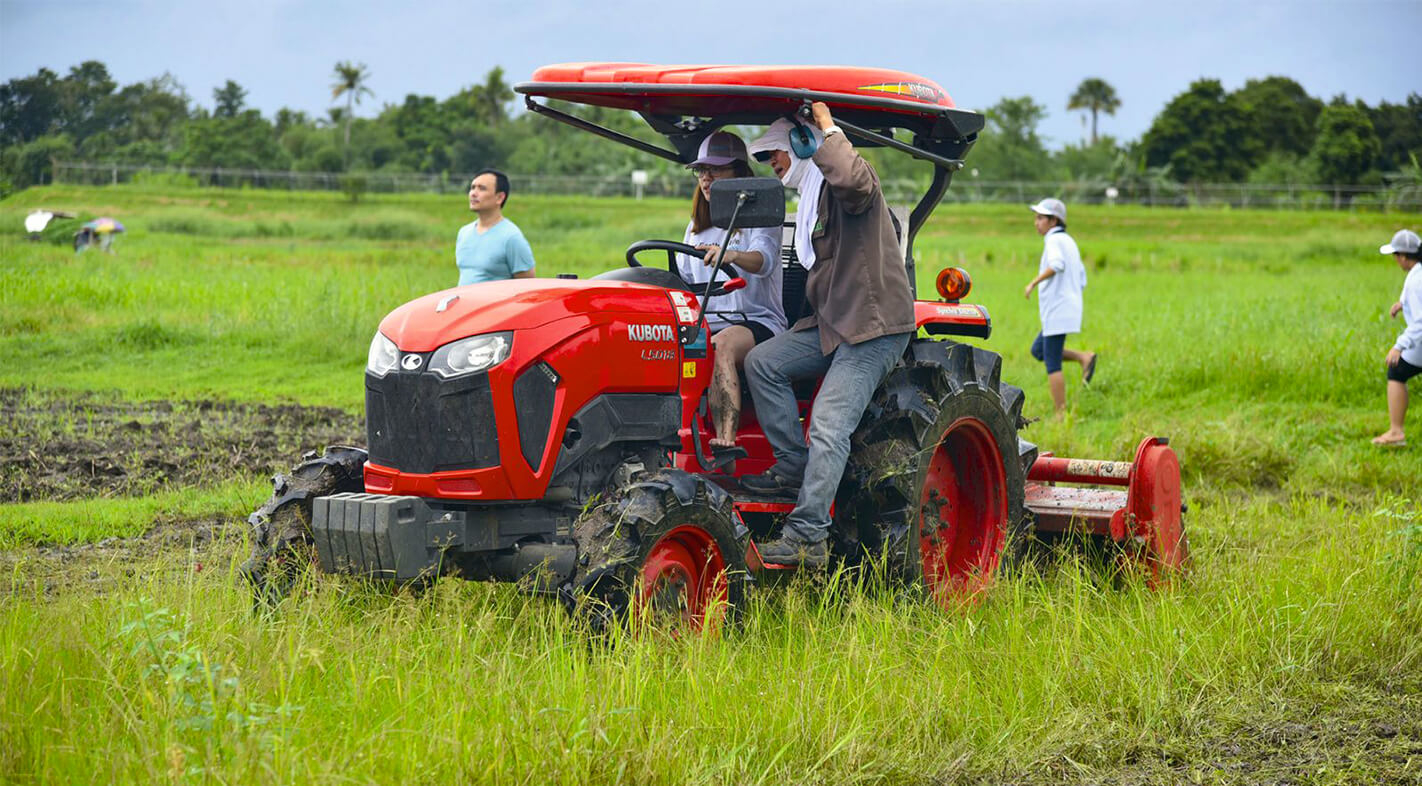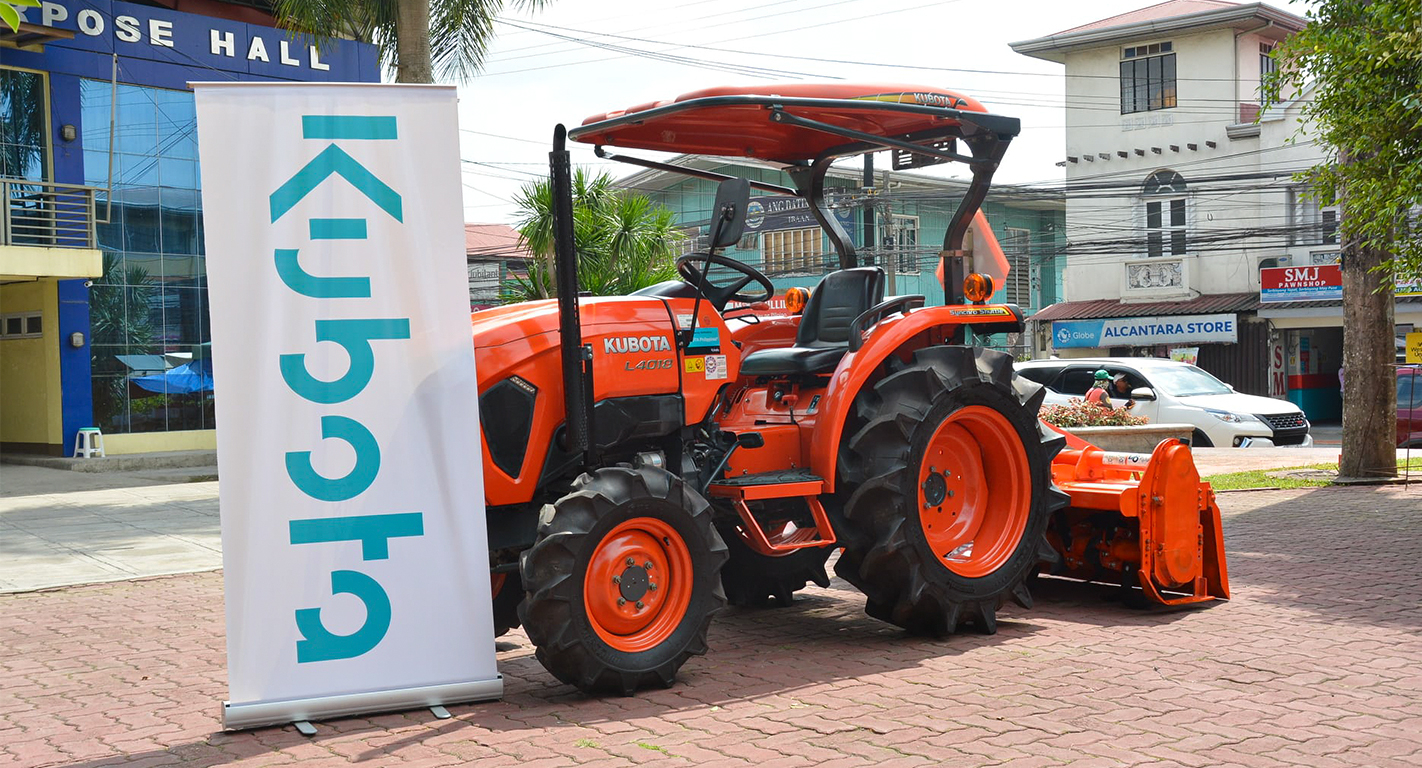Supporting Improved Agricultural Productivity

- Food
Supporting Increased Food Self-sufficiency and Agricultural Productivity in the Philippines
The need for increased food self-sufficiency is an urgent issue in the Philippines, and Kubota Philippines, Inc. (KPI) is contributing to improved agrucultural productivity by donating achicultural machinery.
Rice cultivation has been practiced since ancient times in the Philippines. Although the nation is known as a major rice producing country and boasts of the eighth largest production in the world, much of the farming work is still done manually. Furthermore, the country’s rural communities face serious labor shortages as farmers increasingly age and younger generations leave agriculture. Thinking in terms of future economic growth in the Philippines, the role of improved agricultural productivity will be increasingly important for the nation.
In December 2017, KPI, which is engaged in increasing agricultural productivity and food self-sufficiency in the Philippines, participated in the community engagement activities of the International Rice Research Institute (IRRI), an organization that conducts research and education on rice and aims to establish sustainable rice farming technologies. KPI donated agricultural machinery including a rice transplanter and an automated rice seeder, as well as 1,000 seedling trays. Again in 2021, KPI's donation of an L4018 tractor to the Ibaan area of Batangas Province, and in 2022, its provision of financial support for the purchase of a rotary blade and disk harrow to be used with the donated tractor, are examples of donation activities for areas in need of improved agricultural productivity that are conducted every year.
As a total solution provider in agriculture, Kubota will continue to contribute to increased food self-sufficiency and agricultural productivity in the Philippines by making the most of its techniques and know-how that have led the mechanization of agriculture in Japan and will continue to tackle the challenging issues facing agriculture.

